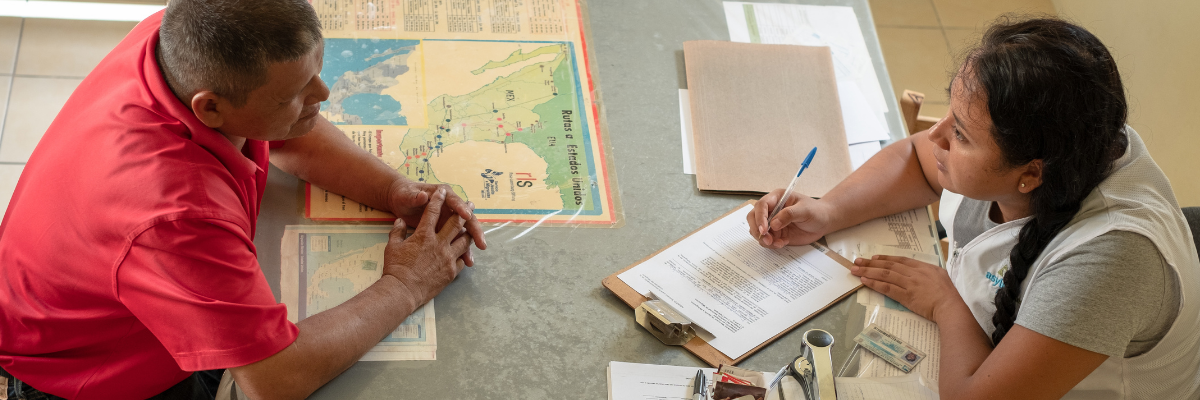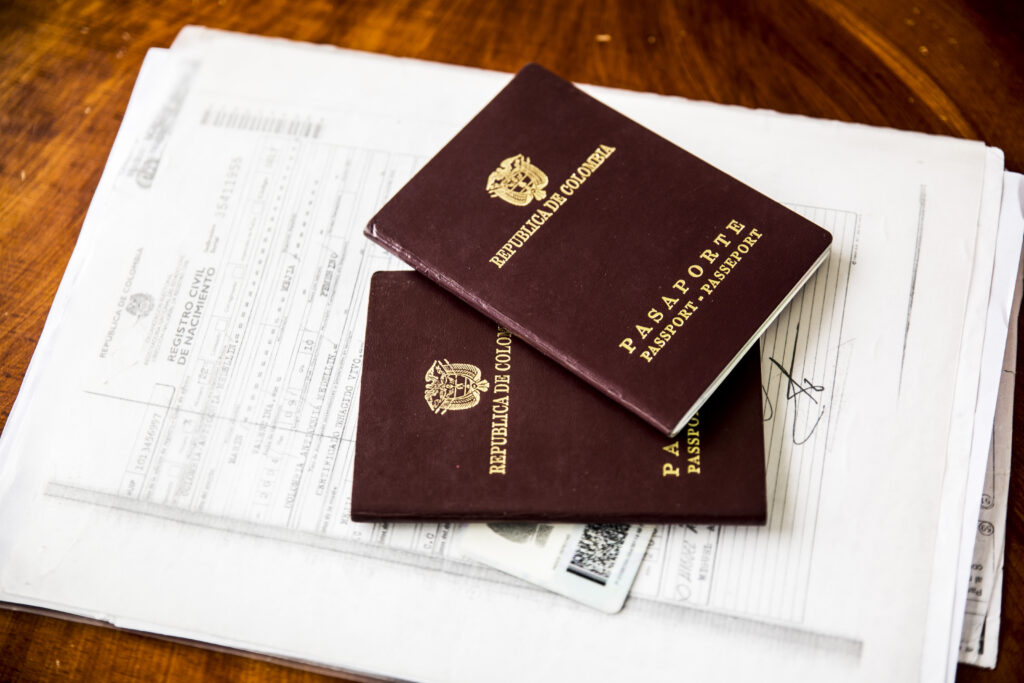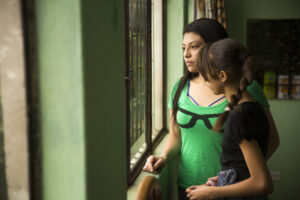Asylum Access lawyers and community advocates use legal empowerment to support refugees as they assert and protect their human rights.

WHAT IS LEGAL EMPOWERMENT?
Legal empowerment supports refugee communities and their allies to understand, use and shape the laws that affect them.
Why is legal empowerment important for refugee communities?
Refugees are our neighbors, our friends and our first responders. They power change and enrich communities for the better. To welcome and include refugees is to improve society for all.
And yet, refugees are often denied the opportunity to fully realize these contributions. After fleeing violence and persecution, many refugees face a renewed violation of their human rights in places that should offer peace and safety.
What kind of legal barriers do refugees face?

Navigating the asylum system
Seeking asylum and international protection is a fundamental right. However, many governments will deliberately complicate and underfund their asylum system in the hopes that refugees will simply give up and go elsewhere. Others will heavily police their borders, preventing refugees from even having the chance to assert their right to asylum.
In countries without a state-run asylum system, refugees must apply for refugee status through the UN Refugee Agency (UNHCR). This too can be a lengthy, stressful and complicated process.

Unlawful detention
Immigration authorities in many countries will place people seeking asylum, including children, into detention until their asylum application is approved. These detention centers are often overcrowded, unsanitary and traumatizing.
The same authorities may also raid homes, schools, workplaces or NGOs in order to arbitrarily detain refugees until they can prove their immigration status.

Access to employment and protection from exploitation
Some countries, like Mexico, do allow refugees and people seeking asylum to work but many potential employers may not know this or are hesitant to go through the paperwork necessary to hire them.
In countries where refugees are forced to earn a living through informal work, like Thailand and Malaysia, employers often exploit refugees’ undocumented status by withholding pay, not protecting their safety in the workplace, or subjecting them to abuse and harassment.

Asserting their rights to education and healthcare
Over half of the world’s refugees are children. Most of these children are prevented from going to school because they have been confined in a camp, come up against language barriers, or are denied enrollment due to ignorance from educational institutions about their right to education.
Similarly, many refugees are prevented from accessing healthcare systems on equal grounds with other residents because of cost, discrimination, lack of identification, or institutional ignorance on the rights of refugees. These barriers have put many in danger during the COVID-19 pandemic.
How does Asylum Access promote legal empowerment?
Understanding the Law
Asylum Access frontline advocates provide refugee communities with information on their rights and options. This is done through one-on-one consultations with refugee clients and their families, as well as regular public workshops carried out for refugee communities. All our legal services are always provided for free to our clients.
Using the Law
We use the law to:
- Free people – especially children – from inhumane detention centers
- Protect refugees from deportation by helping them navigate the confusing administrative and legal requirements for obtaining asylum
- Help refugees access justice for violations of their human rights (including, for example, providing legal assistance to survivors of gender-based violence)
Our national organizations in Thailand and Malaysia also train members of refugee communities to become legal paralegals, legal interpreters and community workers so that they can support and advise their own communities on their rights in their language.
Shaping the Law
We advocate for changes to the law based on our extensive grassroots experience. Learn more about our policy change efforts.
Refugee communities all over the world are using legal empowerment to challenge the barriers that keep them from living safely, moving freely, working and attending school. Asylum Access national organizations provide frontline legal empowerment support in Malaysia, Mexico and Thailand. We provide legal empowerment support in other parts of the world through Asylum Access Global Services partnerships.
